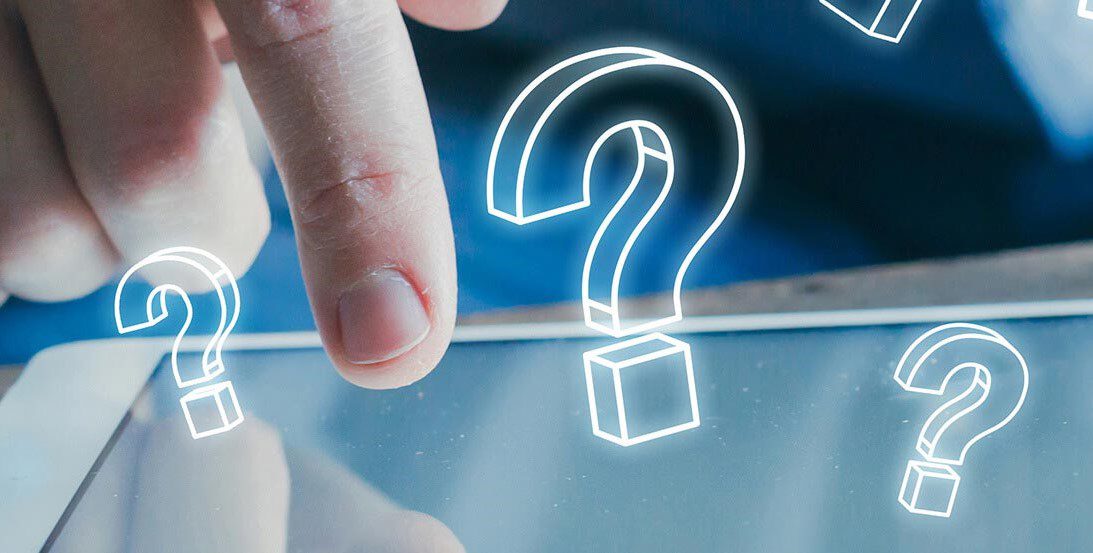Irrational beliefs differentially predict adherence to guidelines and pseudoscientific practices during the COVID-19 pandemic
By: Predrag Teovanović, Petar Lukić, Zorana Zupan, Aleksandra Lazić, Milica Ninković, Iris Žeželj
With the coronavirus pandemic, societies are forced to introduce new measures to curb the infection rate. This means that ordinary people are asked to adopt enhanced protective health behaviors, such as physical distancing and frequent handwashing. However, along with these official recommendations, people are exposed to pseudoscientific information and unverified content pertaining to COVID-19, which have proliferated rapidly through social media (Depoux et al., 2020; Kouzy et al., 2020; Mian & Khan, 2020; Zarocostas, 2020). In fact, we are “not just fighting an epidemic; we’re fighting an infodemic. Fake news spreads faster and more easily than this virus, and is just as dangerous” (WHO, 2020). Pseudoscientific recommendations such as consuming garlic, drinking ginger tea or rinsing nose with saline to prevent contracting the virus, became so pervasive that the WHO (n.d.) had to officially debunk the claims about their effectiveness. Certain pseudoscientific practices (PSPs) are extremely dangerous—for example, more than 700 Iranians were reported dead of methanol poisoning falsely believing it was a miracle cure for COVID-19 (Associated Press, 2020). Another “victim” of the infodemic is the COVID-19 vaccine, which is still in development. Even amid the pandemic, the topic of vaccination has provoked an online backlash (e.g., Mooney, 2020). Given the grave consequences of vaccination refusal, such as failure to reach herd immunity, it is important to understand why some people might be reluctant to get immunized.
Both adherence to official public health recommendations and the use of PSPs might be embedded in a set of irrational beliefs. We refer to irrational beliefs as an umbrella term that covers beliefs which lack a solid evidence base or defy principles of normative rationality (Žeželj & Lazarević, 2019). It encompasses beliefs that differ in content (e.g., paranormal beliefs, conspiracy beliefs or anti-science attitudes) and form, but what they have in common is that they may inhibit reasoning processes (Rizeq et al., 2020). Irrational beliefs have also been referred to as “epistemically-suspect” (Pennycook, Cheyne, et al., 2015; Pennycook, Fugelsang, & Koehler, 2015) or “contaminated mindware” (Rizeq et al., 2020; Stanovich et al., 2016).
In this study, we explored whether people who differ in their predisposition to form irrational beliefs also differ in their tendency to follow appropriate preventive measures for COVID-19. More precisely, whether irrational beliefs such as belief in COVID-19 conspiracy theories, overestimation of one’s own COVID-19 knowledge, susceptibility to type I error cognitive biases, and cognitive intuition predict adherence to COVID-19 guidelines, use of PSPs, and intention to receive a COVID-19 vaccine if it were available. In addition to cognitive intuition and cognitive biases that are more general, knowledge overestimation (i.e., a calibration error relating to the discrepancy between actual, objectively measured and subjective, self-estimated knowledge), and belief in conspiracy theories (potential source of false knowledge about a particular subject) are measures that are content-laden and refer to a specific context, event or a class of events. Content laden beliefs, in comparison to cognitive biases and cognitive intuition, may be more or less pertinent for different health behaviors in the current pandemic.
The COVID-19 pandemic is a public health crisis and, as such, a fertile ground for conspiracy theories (Gonçalves-Sá, 2020; van Prooijen & Douglas, 2017). This aspect of the infodemic might be especially dangerous since medical conspiracy theories have been consistently associated with a range of risky health behaviors including less sunscreen use, not getting annual check-ups or vaccinations, less contraceptive use, and HIV medication nonadherence (e.g., Bogart et al., 2010; Jolley & Douglas, 2014; Oliver & Wood, 2014; Setbon & Raude, 2010; Thorburn & Bogart, 2005). However, recent studies examining the relation between belief in COVID-19 conspiracy theories and self-reported adherence to recommended behaviors have produced inconsistent results. While some found a relation with adherence to health guidelines (Imhoff & Lamberty, 2020; see also Swami & Barron, 2020), others did not (Čavojová et al., 2020; see also Plohl & Musil, 2020). Furthermore, conspiracy theories might be predictive of some, but not other types of recommended protective behaviors—for example, believing in COVID-19 conspiracy theories was related to less social-distancing but unrelated to personal-hygiene behaviors (Pummerer & Sassenberg, 2020). As for pseudoscientific practices, it was shown that people more prone to conspiratorial thinking were more likely to endorse claims related to the effectiveness of complementary and alternative medical treatments in general (Lamberty & Imhoff, 2018; Lobato et al., 2014; Pennycook, Cheyne, et al., 2015) and that they reported greater use of PSPs to prevent contracting coronavirus (Čavojová et al., 2020; Pummerer & Sassenberg, 2020; see also Imhoff & Lamberty, 2020). A possible mechanism through which conspiracy theories may influence health behaviors is by amplifying distrust toward institutions, which makes people less willing to follow official COVID-19 recommendations (Pavela Banai et al., 2020). In order to stay healthy, some people may then turn to PSPs, which are not recommended by authorities due to absence of evidence for their effectiveness. Thus, although there is converging evidence suggesting that conspiracy theories are predictive of PSPs, more studies are needed to explore their influence on adherence to COVID-19 guidelines. We expected that stronger beliefs in COVID-19 conspiracy theories would predict lesser adherence to COVID-19 guidelines (H1a), greater use of PSPs (H1b), and a weaker intention to get vaccinated (H1c).
Knowledge overestimation is typically calculated as a difference between self-assessed and objectively assessed knowledge on a certain subject (Ackerman et al., 2002; Harvey, 1997; Kleitman & Stankov, 2001; Kruger & Dunning, 1999; Stankov, 2000). Pennycook et al. (2017) showed that intuitive individuals tended to be more overconfident on the cognitive reflection test, rating themselves as relatively reflective, despite their test scores showing otherwise. Thus, it is possible that some people would overestimate their COVID-19 related knowledge because their nonreflexivity prevents them from recognizing their ignorance (see also Dunning, 2011; Kruger & Dunning, 1999), which would in turn make them less likely to engage in preventive behaviors during the pandemic. In fact, knowledge overestimation has been widely documented in the health domain (see Dunning et al., 2004). The inability to recognize one’s lack of skill or knowledge (Kruger & Dunning, 1999) can, in this context, prevent people from familiarizing themselves enough with the official guidelines. In this study, we expected that higher levels of COVID-19 related knowledge overestimation would predict lesser adherence to COVID-19 guidelines (H2a), greater use of PSPs (H2b), and weaker intention to get vaccinated (H2c).
Cognitive biases, as systematic departures from what is normatively defined rational behavior, can be viewed as a relatively broad category of irrational beliefs. Taking into account that the cognitive biases space is considerably heterogeneous (see, for example, Kahneman & Frederick, 2005; Pohl, 2004; Stanovich, 2009; Teovanović et al., 2015), we focused on a subset which concerns a general tendency to make a type I error. Such a choice was motivated by Haselton and Buss’ (2000) notion on cost asymmetry between two types of errors (type I and type II) that can occur when judgments are made under uncertainty. More precisely, as the probability of making either type of error cannot be simultaneously minimized, people tend to decrease the likelihood of making the costlier one (Haselton et al., 2009). Since the consequences of type II errors (i.e., false-negatives) refer to failures to notice actual relations between phenomena, they are usually considered as costlier. Thus, people are typically biased toward type I errors (i.e., false-positives) which refers to making incorrect conclusions about the existence of relations between unrelated phenomena. In our study, biases that are based on making a type I error were represented by the illusory correlation detection (Smedslund, 1963), base-rate neglect (Tversky & Kahneman, 1974), gambler’s fallacy (Tversky & Kahneman, 1974), and hot-hand fallacy (Gilovich et al., 1985) bias. Although cognitive biases have shown to be predictive of some paranormal (Bressan, 2002; Pennycook et al., 2012; Šrol, 2020; van Prooijen et al., 2017) and pseudoscientific beliefs (Pennycook, Cheyne, et al., 2015; Redelmeier & Tversky, 1996; Šrol, 2020), they remain underexplored in the domain of both PSPs and adherence to public health guidelines. Starting from the general hypothesis about relation between irrational beliefs and health behaviors, we expected that a higher susceptibility to such cognitive biases would predict lesser adherence to COVID-19 guidelines (H3a), greater use of PSPs (H3b), and weaker intention to get vaccinated (H3c).
Cognitive intuition is often assessed with the cognitive reflection test (CRT; Frederick, 2005), which consists of three items that lead most people to answer quickly and incorrectly. While cognitive biases are related to specific types of predictable errors on heuristics-and-biases tasks, cognitive intuition refers to an inability to “resist reporting the response that first comes to mind” (Frederick, 2005, p. 27). Previous research has shown that misleading intuitions predict paranormal beliefs (Pennycook et al., 2012; Ståhl & van Prooijen, 2018) as well as religious beliefs (Pennycook, Fugelsang, & Koehler, 2015; Shenhav et al., 2012). In the health domain, cognitive intuition was related to beliefs about the effectiveness and self-reported use of complementary and alternative treatments both before (Browne et al., 2015; McPhetres & Pennycook, 2019; see also Lindeman, 2011) and during the COVID-19 pandemic (Čavojová et al., 2020; Erceg et al., 2020; Pennycook et al., 2020). However, recent findings on the relation between CRT performance and adherence to official COVID-19 guidelines are mixed – while some found a negative relation (Stanley et al., 2020), others failed to establish any link (Čavojová et al., 2020; Erceg et al., 2020; Pennycook et al., 2020; cf. Stanley et al., 2020). We expected that higher cognitive intuition would predict lesser adherence to COVID-19 guidelines (H4a), greater use of PSPs (H4b), and weaker intention to get vaccinated against COVID-19 (H4c).
In sum, the present study builds upon emerging research on evidence and nonevidence based COVID-19 related recommendations by examining the predictiveness of different irrational beliefs for COVID-19 related health behaviors in a single design.
Source: Applied Cognitive Psychology















